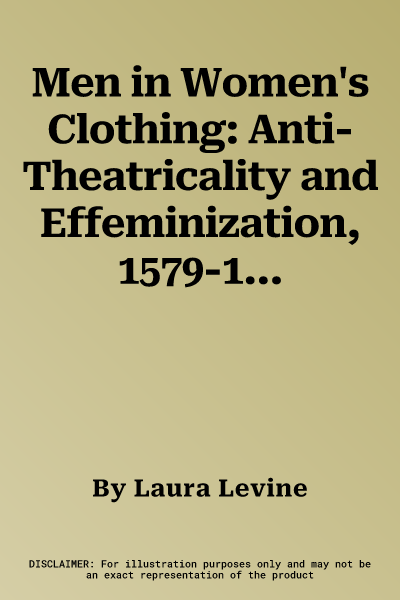Laura Levine
(Author)Men in Women's Clothing: Anti-Theatricality and Effeminization, 1579-1642Hardcover, 13 October 1994

Temporarily out of stock
Free Delivery
Cash on Delivery
15 Days
Free Returns
Secure Checkout

Part of Series
Cambridge Studies in Renaissance Literature and Culture
Part of Series
Lezioni Lincee
Print Length
195 pages
Language
English
Publisher
Cambridge University Press
Date Published
13 Oct 1994
ISBN-10
0521455073
ISBN-13
9780521455077
Description
Product Details
Author:
Book Format:
Hardcover
Date Published:
13 October 1994
Dimensions:
22.81 x
15.19 x
1.6 cm
ISBN-10:
0521455073
ISBN-13:
9780521455077
Language:
English
Location:
Cambridge
Pages:
195
Publisher:
Weight:
417.3 gm